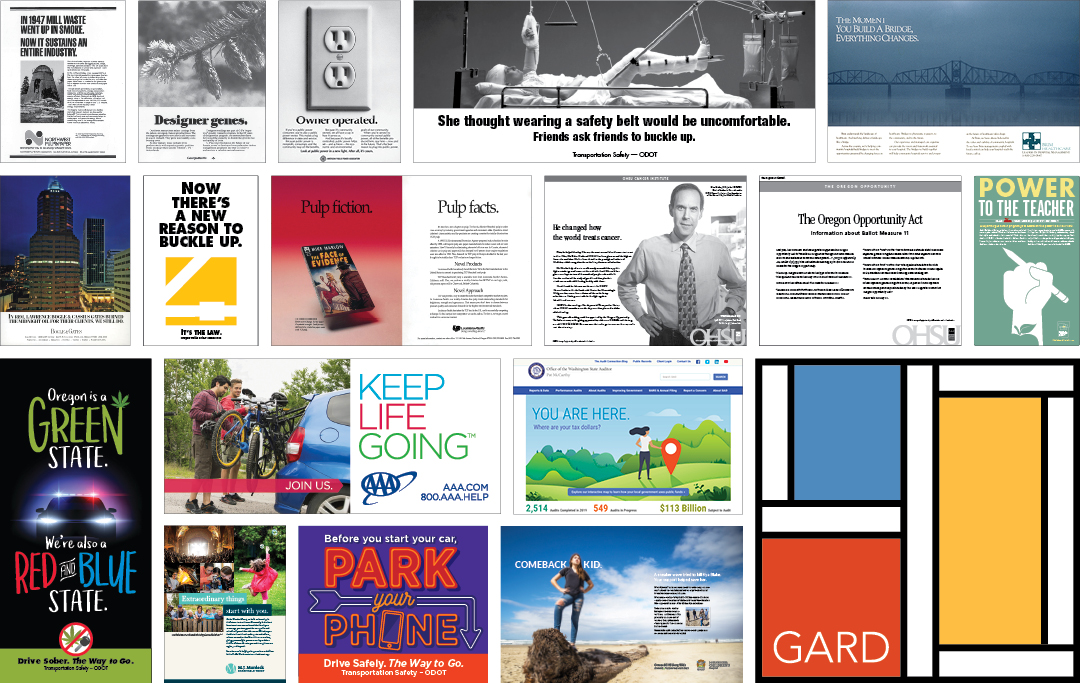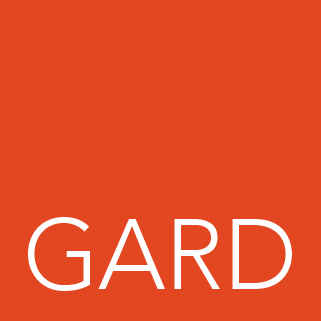“Concentrate on the work and the rest will follow.”
Brian Gard first started saying that to himself and adhering to it as his guiding strategy at the very inception of what would become Gard Communications in 1979.

Forty years later, Gard Communications has evolved from its early days, but has never veered far from the idea that if you simply concentrate on the client work in front of you, the rest will follow.
It’s a strategy that has worked well for Brian since he founded his namesake corporate advertising and public relations firm. He has a background in teaching English literature and, inadvertently, journalism — he helped save the floundering student paper at the University of the Pacific in 1969 where he was teaching in the early 1970s. Then he returned to Oregon and worked in television sales, production and on-air at KGW-TV, before launching Brian Gard Advertising Production Services in 1979.
Early clients like Northwest Pulp and Paper Association and Georgia-Pacific gave Brian an affinity for issues that were complex, sometimes controversial and in need of crisis communications.
“I didn’t plan to focus on crisis communications, I just liked the work,” Brian says. “And since most of the established firms avoided that work in those days, it gave us an edge.”
That edge led to a focus on clients in regulated industries that provided important services such as utilities, healthcare and resource-based companies.
In the ensuing years, Gard Communications took on work that has had far-reaching impacts still felt across Oregon and beyond. In 1990, after six years of helping the State of Oregon promote safe driving, the firm helped pass Measure 9, a law requiring adults to use safety belts. Measure 9 saves an estimated 300 lives a year in Oregon. The firm also helped plan and manage the Oregon Opportunity Campaign for OHSU in 2000-2002, which landed $200 million in state funding for OHSU and created thousands of jobs in construction, medicine and science.
While it’s the huge successes like those that stand out in retrospect, it’s the day-to-day work at Gard — and the single-minded concentration on it over time — that often makes the biggest impact for clients and the community.
“There’s always a sense that you come to work here to be intellectually challenged but also feel like you are engaged in the community in a way that really matters,” says Liz Fuller, Gard’s current president, who joined the firm in 2010. “Whether it’s working with Ecotrust or the M.J. Murdock Charitable Trust or Moda, it feels good to really support these organizations and their employees.”
As for Gard’s own employees, the team comprises a mix of veterans and newer faces that work together to produce top-notch results for clients. A fifth of the core team, including Valarie Grudier, Anne Mangan, Tanya Partem, John Plymale and Scott Sparling, have had stints at Gard spanning at least 20 years.
“We have a remarkable record of retaining both employees and clients, some of them very long term,” Brian says. “I think that says a lot about us and our clients.”
While Gard Communications takes time to reflect on 40 years of past success, the firm is also setting the stage for future success. Brian himself saw the potential of the company and its next chapter in Liz when she joined the firm nine years ago. In the ensuing years, he mentored her and walked her through the leadership path. Today, a long-term succession plan is sunsetting and will eventually find Brian in retirement, Liz in an ownership role, and Gard Communications continuing to concentrate on the work — as it always has.
“I want to continue to do work that is impactful for our clients while also seeing how we can leverage our expertise on a more regional and national scale, as we are beginning to do now with clients such as OCHIN and Global Partners,” Liz says. “It’s always somewhat surprising — and flattering — when I hear other people talk about Gard and the work we do. It’s affirming for us. Brian built this thing from scratch and he’s really done a great job of it along the way. We are heading where we are because of how far he’s already taken us.”
